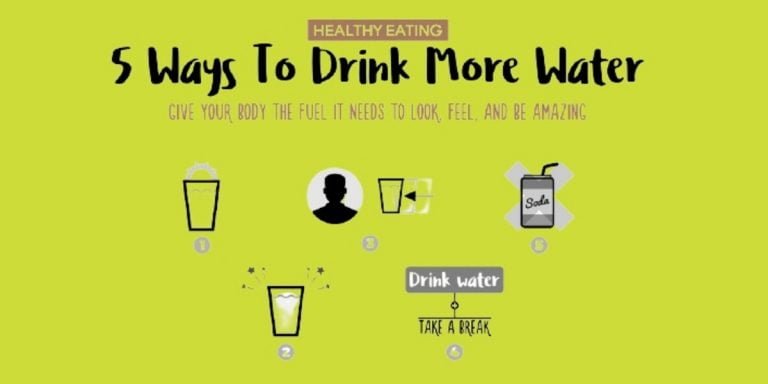Positive Affirmation Health: How Affirmations Can Improve Your Health
Positive affirmation health is a simple yet powerful statement that can help you change the way you think and feel about yourself. They are positive phrases or sentences that you repeat to yourself on a regular basis, with the goal of reprogramming your mind to focus on the good and overcoming negative thoughts and beliefs.

The topic of this post is the connection between positive affirmations and health. Positive affirmations can be a useful tool in promoting overall well-being and can help to improve both mental and physical health. When we repeat affirmations to ourselves, we are training our minds to focus on the positive, which in turn can lead to improvements in mood, stress levels, and physical health.
Studies have shown that the regular use of positive affirmations can help to reduce anxiety and depression, manage chronic pain, and boost self-esteem. In this post, we will explore the science behind positive affirmations, and how they can be used to improve health and well-being.
The Science behind Positive Affirmation Health
The psychological theories that explain how positive affirmations work are based on the concept of self-fulfilling prophecy and cognitive-behavioral therapy. A self-fulfilling prophecy is a belief that influences a person’s behavior in such a way that it causes the belief to come true.
So, when we repeat positive affirmations to ourselves, we are essentially creating a self-fulfilling prophecy where our thoughts and behaviors align with the positive statement.
Cognitive-behavioral therapy, or CBT, is a type of therapy that focuses on how our thoughts, feelings, and behaviors are interconnected. The theory behind CBT is that negative thoughts and behaviors can lead to negative emotions, while positive thoughts and behaviors can lead to positive emotions.
By using positive affirmations, we are changing our negative thoughts and behaviors into positive ones, which can lead to improved mood and well-being.
Several studies have shown the effectiveness of positive affirmations in reducing stress and improving mood. A study published in the Journal of Clinical Psychology found that participants who used positive affirmations experienced a significant reduction in anxiety and an improvement in mood compared to those who did not use affirmations.
Another study published in the Journal of Behavioral Medicine found that using positive affirmations improved self-esteem and reduced symptoms of depression in individuals with chronic illnesses.
The repetition of affirmations can also have a physiological impact. A study from the University of Pennsylvania found that people who practiced affirmations had reduced activity in the amygdala, a brain area associated with stress.
Another study from the University of California, Santa Barbara found that people who used affirmations had lower blood pressure and heart rate compared to those who did not.
Overall, these studies suggest that positive affirmations can be a powerful tool in promoting mental and physical health by influencing the way we think, feel and react.
How Positive Affirmations Can Improve Health
Positive affirmations can be used to improve a wide range of physical and mental health issues. They can be particularly effective in reducing anxiety and depression, managing chronic pain, and boosting self-esteem.
Reducing Anxiety and Depression
Anxiety and depression are two common mental health conditions that can greatly impact one’s quality of life. Studies have shown that using positive affirmations can be an effective way to reduce symptoms of these conditions.
Repeating affirmations such as “I am strong and capable” or “I am worthy of love and happiness” can help to shift negative thoughts and beliefs into more positive ones, leading to improved mood and reduced anxiety.
Managing Chronic Pain
Chronic pain can be debilitating and can greatly impact one’s daily life. Positive affirmations can be used as complementary therapy to help manage this type of pain. Affirmations such as “I am in control of my body” or “I am capable of healing” can help to shift focus away from pain and towards positive thoughts and emotions.
Boosting Self-Esteem
Low self-esteem can lead to a variety of mental and physical health issues. Positive affirmations can be used to boost self-esteem by reinforcing positive thoughts and beliefs about oneself. Affirmations such as “I am worthy and deserving of love and happiness” or “I am capable of achieving my goals” can help to build self-confidence and self-worth.
When creating and using positive affirmations, it is important to make them specific and personal to you. They should be written in the present tense and repeated regularly, ideally every day. You can also try different affirmation techniques such as writing them down, saying them out loud, or creating a vision board with pictures and words that reflect the affirmations.
Incorporating positive affirmations into your daily routine can be a simple yet effective way to improve mental and physical health. Regular use of positive affirmations can help to reshape negative thoughts and beliefs and promote a sense of well-being and self-empowerment.
Case Studies
- Sally had struggled with anxiety for many years and had tried various methods to manage it without success. She decided to try using positive affirmations and was surprised by the results. She repeated affirmations such as “I am strong and capable” and “I am in control of my thoughts and emotions” on a daily basis, and found that her anxiety gradually decreased and her self-confidence increased.
- John was diagnosed with chronic pain and was struggling to manage it. He has been prescribed medication but was looking for additional ways to cope. He started using positive affirmations such as “I am capable of healing” and “I am in control of my body”, and noticed a reduction in his pain levels and an improvement in his overall mood.
- Sarah had always struggled with low self-esteem and had a hard time believing in her own abilities. She started using affirmations such as “I am worthy and deserving of love and happiness” and “I am capable of achieving my goals”, and found that over time, her self-esteem improved and she was more likely to take on new challenges and see herself as a capable individual.
These case studies illustrate how powerful affirmations can be in promoting health and well-being. They also demonstrate the importance of making affirmations specific, personal, and repetitive in order to achieve maximum benefits.
Conclusion
In this post, we explored the connection between positive affirmations and health. We discussed the science behind how positive affirmations work, and how they can be used to improve a wide range of physical and mental health issues such as reducing anxiety and depression, managing chronic pain, and boosting self-esteem. We also provided case studies to illustrate the real-life impact of affirmations on the individual’s health.
Positive affirmations can be an effective tool for promoting overall well-being and improving mental and physical health. They are simple, yet powerful statements that can reprogram your mind to focus on the good and overcome negative thoughts and beliefs. Incorporating positive affirmations into your daily routine can be a simple yet effective way to improve mental and physical health.







